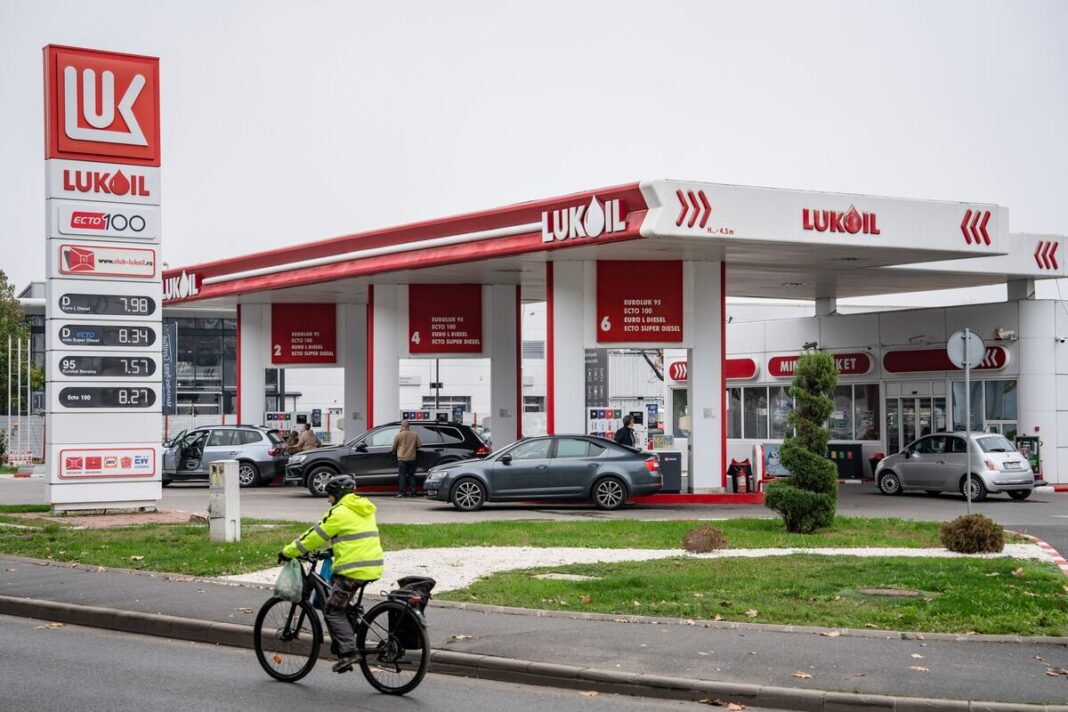Lukoil’s International Assets: A Target for Major Corporations amid Sanctions
In the ever-evolving world of global oil and gas, few developments spark as much interest as the recent sale of Lukoil PJSC’s international assets. With a prominent lineup of interested buyers, including Exxon Mobil Corp., Chevron Corp., Abu Dhabi National Oil Co., and private equity giant Carlyle Group, the urgency surrounding this sale has intensified due to impending US sanctions. This article delves into the intricacies of this situation, highlighting the motivations, implications, and potential outcomes of this high-stakes transaction.
Understanding Lukoil’s Position
Lukoil PJSC, one of Russia’s largest oil companies, has long been a key player in the global energy market. Its substantial international assets span various regions, including Europe, Asia, and Africa. However, the geopolitical landscape has dramatically shifted following Russia’s actions in Ukraine. The subsequent sanctions imposed by the United States are set to come into full effect next month, compelling Lukoil to reevaluate its global footprint.
The urgency of these sanctions presents both challenges and opportunities—to shedding non-compliant operations and attracting potential investors looking to capitalize on discounted assets.
The Effect of Sanctions
US sanctions are designed to exert economic pressure on Russia, impacting major sectors, including oil and gas. Analysts predict these sanctions will not only limit Lukoil’s ability to operate internationally but also decrease its revenue streams. With the clock ticking, Lukoil’s leadership is incentivized to expedite the sale of its international assets, thus minimizing operational risks while securing financial viability.
These pressures also create fertile ground for foreign companies that may previously have faced barriers to entering the Russian market, presenting a unique opportunity in the wake of geopolitical shifts.
Who Are the Interested Buyers?
Exxon Mobil Corp. and Chevron Corp.
Both Exxon Mobil and Chevron are household names in the American oil industry, with extensive global operations. Their interest in Lukoil’s assets likely stems from a desire to gain footholds in previously inaccessible markets, given that any acquisitions would come at a heavily discounted rate owing to the urgency of the sale. These companies have the financial robustness and technical expertise to manage these assets effectively, making them strong contenders.
Abu Dhabi National Oil Co. (ADNOC)
As a state-owned enterprise from the UAE, ADNOC has significant resources at its disposal. Their interest in Lukoil’s assets may align with their broader strategy to diversify sources of crude oil and expand their international portfolio. This potential acquisition could support ADNOC’s ambitions to solidify its position as a key global player in the energy sector.
Carlyle Group
Unlike the oil majors expressly focused on energy production, Carlyle Group brings a different dynamic as a private equity giant. With a history of investing in high-potential energy assets, their foray into Lukoil’s international assets reflects a financial strategy that seeks to maximize long-term returns. Carlyle’s potential involvement could lead to innovative management strategies that recognize the changing dynamics of global energy consumption.
The Financial Implications of the Sale
The valuation of Lukoil’s international assets is a complex subject, influenced by several factors, including market conditions, geopolitical risks, and regulatory barriers. While the impending sanctions may depress the asset values temporarily, the opportunity for these companies also arises from the potential for long-term gains if they can successfully navigate the political landscape and operate efficiently.
Moreover, the sale could result in a surge of investment in regions traditionally dominated by Lukoil, contributing to local economies while diversifying the portfolios of the acquirers.
A Shifting Landscape
The situation surrounding Lukoil’s international asset sale is indicative of a broader shift in the global energy landscape. As nations grapple with the implications of energy independence and technological advancements, companies are increasingly seeking partnerships and acquisitions that align with emerging energy trends, such as renewable sources or digital transformations in oil extraction processes.
This sale could serve as a catalyst, reshaping alliances and competitive strategies within the oil and gas sector, impacting not only the immediate players but also the global economy as a whole.
The Broader Implications
As the world watches the developments regarding Lukoil closely, the ramifications extend beyond just the immediate participants. Analysts are keenly observing how these acquisitions may influence energy prices, international relations, and even environmental policies. With climate change firmly on the global agenda, how these companies decide to manage and change Lukoil’s assets could lead to significant shifts in energy production paradigms.
In essence, this sale not only holds financial weights but moral and environmental ones as well, potentially altering how nations and corporations perceive their roles in the transition to cleaner energy sources.
The next few weeks will be crucial in determining how this chapter unfolds for Lukoil, its potential buyers, and the global oil market at large. Each player involved has a stake in how this sale could define their future in a rapidly changing landscape.



